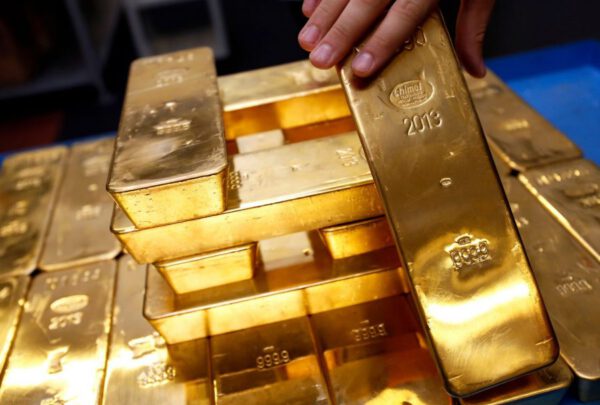As the coronavirus pandemic struck Ghana in March 2020, its government introduced sweeping social and and hygiene measures to curb the contagion.
While heralded as essential, the measures came with a hefty price tag: the IMF projected the government deficit to reach 9.5 percent of GDP in 2020.
A significant drop in oil prices induced by the pandemic exacerbated the fiscal challenge, by reducing expected oil revenues. Ghana faced a significant financing gap and further complication of its already precarious financial position.
In an otherwise bleak economic scenario, Ghana’s gold was seen as an opportunity—the country is Africa’s largest producer of the precious metal, the price of which rose during the pandemic. Yet Ghana has historically struggled to earn a fair share of its gold revenues due to bloated costs and company profit-shifting practices.
In August 2020, the government’s plans for the gold sector crystallized in the proposed creation of a new company, Agyapa Royalties Ltd. Concerns quickly escalated over the opaque process and substantive risks of the proposed plan and NRGI began to inform the emerging debate.
Read also: Gold Fields presents ¢120.7m dividend to government
Agyapa Royalties was touted by the government as an “innovative financing solution” that would not add to the country’s debt. The government’s plan involves assigning a majority of gold mining royalties from all of Ghana’s current industrial gold production to a new offshore company and selling 49 percent of the shares of this company in an initial public offering for an estimated $500 million in upfront cash.
Analysis by NRGI and its Ghanaian civil society partners exposed important governance vulnerabilities and risks from the deal, including:
- Risk of undervaluation
- Loss of control over gold sector governance
- Loss of ability to repay existing loans
- Limited consultation and questions on transparency and accountability provisions
Corruption risks
When information on the Agyapa IPO surfaced in social media in early August, NRGI convened discussions with a group of key Ghanaian civil society organizations (CSOs). This group coalesced into an “Alliance of CSOs Working on Extractives, Anticorruption, and Good Governance,” now consisting of 25 organizations.
With limited information on the deal, the alliance’s initial focus rested on denouncing the opacity of the process and the reported involvement of politically exposed persons.
A press conference prompted the government to provide additional information on the deal in September 2020. With new information and documents on hand, NRGI experts conducted a technical analysis, which was later shared publicly in a popular blog post.
NRGI helped the alliance to broaden its advocacy “asks” by providing solutions to ensure an adequate valuation of Ghana’s gold and to protect the sovereign rights of the government to adjust fiscal terms and maintain control of decisions made by Agyapa Royalties.
The alliance held another press conference to present its renewed concerns and demand an immediate suspension of the deal and additional public consultation. Ghana’s top media, with which NRGI has built relationships over a decade, began to actively report on the deal, carrying statements from the alliance and providing ample space and airtime to its members.
NRGI connected with key international media outlets, with the Financial Times and the Economist citing NRGI’s legal and economic analysts. NRGI also facilitated interviews with members of the alliance who brought Ghanaian civil society’s concerns on the deal to the global stage.
Impact
Following two months of coordinated pressure from civil society, the office of the Special Prosecutor of Ghana requested on 29 September the suspension of the Agyapa IPO until it received all relevant documentation from the Ministry of Finance to complete a corruption risk assessment.
On 2 November, the special prosecutor announced the completion and submission to the president and minister of finance of its report. The president then publicly disclosed the report with a letter of acknowledgment, requesting the re-submission to parliament of four agreements underpinning the creation of Agyapa Royalties and calling for a broad debate and consensus building after the December 2020 elections.
The special prosecutor’s report outlines potential corruption risks and infringement of procurement legislation, validating some of the risks raised by civil society, while missing other substantive concerns. In December 2020, Ghana’s president was reelected. In March 2021 he stated that his government will be coming back to the parliament to push through the Agyapa proposal, although he did not reveal what shape the deal would take.
The future of the deal is still pending, but civil society successfully placed the issue at the top of the national agenda. NRGI and partners intend to seize openings with the ruling party for a broader and more transparent debate on the risks and opportunities of the deal.


[…] Read also: Demystifying Ghana’s Agyapa Royalties deal […]
[…] also: Demystifying Ghana’s Agyapa Royalties deal He said the Ministry as part of measures to improve the mining sector intended to offer miners […]